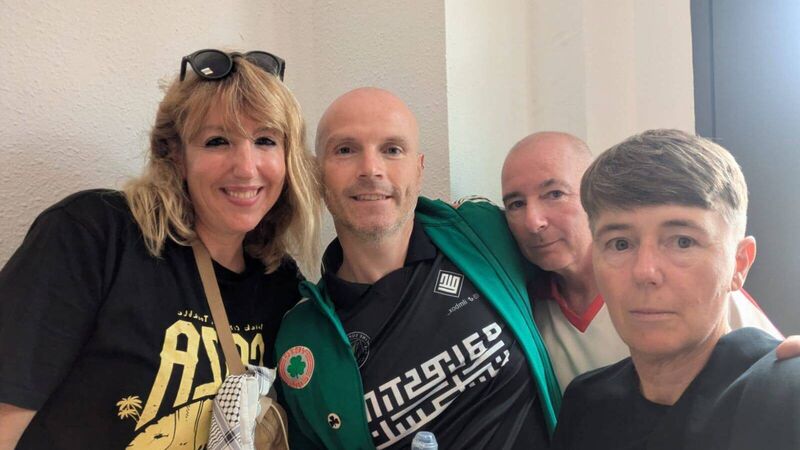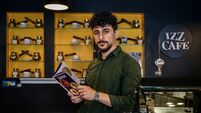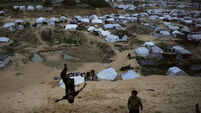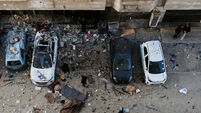Sarah Clancy: Flotillas show that ordinary people must be the antidote to toxic world powers

Activists Caoimhe Butterly, Tadhg Hickey, Fra Hughes and Sarah Clancy.
Last Monday night, along with Tom McCune and Donna Schwarz , I arrived in Dublin airport to an undeserved but heartwarming hero’s welcome.
At 4.30am that day we had been woken by blinding lights and the sound of a riot shield being slammed against our prison cell door by a group of gun-toting male prison guards who yelled at us that it was time to get up. For five days and nights we had been in Ktzi'ot high-security prison in the Negev desert in the Palestinian lands occupied by Israel and during that day we were deported from there through Eliat Airport to Athens and then finally home to Dublin.
















